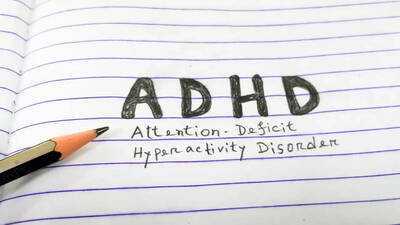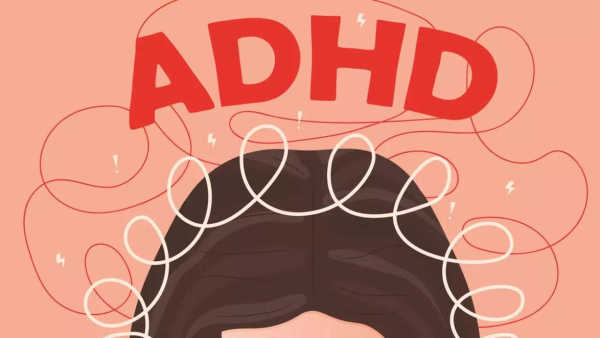
Being diagnosed with attention deficit hyperactivity disorder or ADHD not only affects focus and organizing skills, but can also have an effect on life expectancy, as per a new study. Men with ADHD live seven years shorter, while women with the condition die nine years earlier, on an average, compared to people without it.
People with ADHD face greater risk of shorter life expectancy and mental health issues as per a new study published in The British Journal of Psychiatry, involving more than 30,000 people in the UK.
Studies suggest 3-4% of adults around the world have ADHD. The condition affects men and women differently as per the study. While men with ADHD may have a reduced life expectancy of 4½ years to nine years, while women with the condition could live 6½ years to 11 years.
Men diagnosed with ADHD had a reduction in life expectancy by 4 ½ years to nine years, while women’s life expectancy was shortened by 6 ½ years to 11 years, according to the study published Thursday in
Researchers call for finding reasons behind these premature deaths to help devise strategies to prevent this in future.
“Although many people with ADHD live long and healthy lives, our finding that on average they are living shorter lives than they should indicates unmet support needs,” said lead study author Dr. Liz O’Nions, honorary research fellow in clinical, education and health psychology at University College London, in a news release. “It is crucial that we find out the reasons behind premature deaths so we can develop strategies to prevent these in the future.”
What is attention deficit hyperactivity disorder?

ADHD is a developmental disorder which is commonly diagnosed in childhood but often lasts into adulthood. People with the condition may have problem paying attention, keeping on task, or staying organized. It is also associated with hyperactivity, such as often moving around, feeling restless, or talking excessively. It can also lead to impulsivity, such as interrupting, intruding on others, or having trouble waiting one’s turn.
People with ADHD have imbalanced neurotransmitters, one of which is dopamine, which is a key neurotransmitter required to help us with executive function and self-regulation skills involving planning, focusing and sustaining attention, remembering instructions and multitasking.
How the research was carried out
The research team took into account data from 30,029 adults with ADHD and compared them with nearly 300,400 participants who didn’t have ADHD.
Life expectancy apart, it was also found that ADHD can lead to a higher risk of mental health issues such as anxiety, depression, self-harm, suicide and personality disorders. The group also had conditions like autism, intellectual disabilities, harmful habits such as smoking or “potentially harmful alcohol use,” and physical health problems including diabetes or high cholesterol, in common.
Prof Joshua Stott, a senior author of the research from University College London explained that while ADHD is unlikely to be a direct cause of shorter life expectancies, several factors could contribute to the findings. He noted that individuals with ADHD are more prone to mental health challenges, may face greater barriers to accessing necessary healthcare, and could be influenced by lifestyle factors.
“We know that people with ADHD have higher suicide rates unfortunately,” Stott said. “They are also more likely to engage in risky behaviours like smoking, drinking and actually binge eating probably as well.”
The team noted that the study might overestimate the life expectancy gap for individuals with ADHD, as those diagnosed in adulthood are more likely to have coexisting mental health or neurodevelopmental conditions. They emphasized that further research is needed to understand the connection between ADHD and shorter life expectancy.
The authors of the study also raised concerns about under-diagnosis of ADHD, as they noted that just 0.32% of adults in the study had a diagnosis.
(Picture courtesy: iStock)
 Being diagnosed with attention deficit hyperactivity disorder or ADHD not only affects focus and organizing skills, but can also have an effect on life expectancy, as per a new study. Men with ADHD live seven years shorter, while women with the condition die nine years earlier, on an average, compared to people without it.
Being diagnosed with attention deficit hyperactivity disorder or ADHD not only affects focus and organizing skills, but can also have an effect on life expectancy, as per a new study. Men with ADHD live seven years shorter, while women with the condition die nine years earlier, on an average, compared to people without it.
